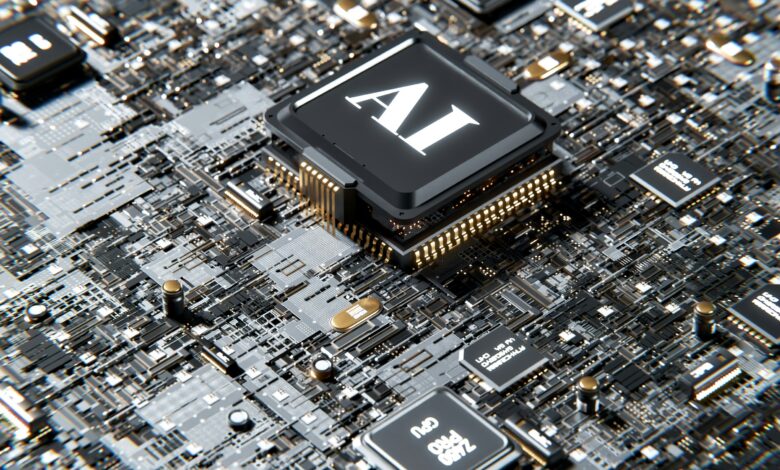
Artificial Intelligence (AI) is rapidly transforming various sectors, and its influence on the job market is particularly profound. While AI brings numerous opportunities, it also presents significant challenges. Understanding the balance between these aspects is crucial for workers, businesses, and policymakers. This article explores the impact of Artificial Intelligence on job markets, highlighting the opportunities it creates, the challenges it poses, and the steps necessary to navigate this evolving landscape.
Opportunities Created by Artificial Intelligence
Artificial Intelligence has the potential to create a myriad of job opportunities across different sectors. As AI technologies continue to advance, new roles and industries are emerging, requiring a workforce equipped with diverse skills.
- New Job Roles: AI is driving demand for roles that didn’t exist a few years ago. Data scientists, AI specialists, and machine learning engineers are just a few examples of positions that have gained prominence. These roles are essential for developing, implementing, and maintaining AI systems. Additionally, fields such as AI ethics and AI auditing are gaining importance as organizations seek to ensure their AI systems are fair, transparent, and accountable.
- Enhanced Productivity: AI can enhance productivity by automating repetitive and mundane tasks, allowing employees to focus on more strategic and creative work. For instance, in the healthcare sector, AI-powered tools can handle administrative tasks like scheduling and billing, enabling healthcare professionals to devote more time to patient care. This shift can lead to improved job satisfaction and higher-quality output.
- Innovation and Entrepreneurship: The rise of AI is fostering innovation and entrepreneurship. Startups and tech companies are leveraging AI to develop cutting-edge products and services, from advanced medical diagnostics to personalized shopping experiences. This innovation is creating new business opportunities and driving economic growth, ultimately leading to job creation across various industries.
Challenges Posed by Artificial Intelligence
Despite its potential, Artificial Intelligence also poses significant challenges that need to be addressed to mitigate its impact on the job market.
- Job Displacement: One of the most pressing concerns is the displacement of jobs due to automation. Routine and manual tasks are increasingly being performed by AI-powered machines, leading to job losses in sectors like manufacturing, retail, and transportation. Workers in these industries may find themselves facing unemployment or the need to transition to different roles.
- Skills Gap: The rapid advancement of AI technology has created a skills gap in the job market. Many workers lack the necessary skills to adapt to new AI-driven roles. This gap is particularly pronounced in fields requiring specialized technical knowledge, such as machine learning and data analysis. Bridging this gap requires significant investment in education and training programs to upskill the workforce.
- Inequality: The benefits of AI are not evenly distributed, leading to potential increases in economic inequality. High-skilled workers who can leverage AI technology may see substantial wage gains, while low-skilled workers may experience job displacement and wage stagnation. This disparity can exacerbate existing socioeconomic inequalities, making it crucial to implement policies that promote inclusive growth.
Adapting to the AI-Driven Job Market
To harness the opportunities presented by Artificial Intelligence while addressing its challenges, several strategies need to be implemented.
- Education and Training: A robust education system that emphasizes STEM (science, technology, engineering, and mathematics) is essential. Equipping students with foundational knowledge in these areas will prepare them for AI-related roles. Additionally, continuous learning and upskilling programs for the current workforce are crucial. Governments, educational institutions, and businesses must collaborate to offer accessible and relevant training opportunities.
- Policy Interventions: Policymakers play a critical role in shaping the future of the job market in the age of AI. Implementing policies that encourage innovation while protecting workers’ rights is essential. This includes creating safety nets for displaced workers, such as unemployment benefits and retraining programs. Additionally, policies should promote ethical AI development to ensure fairness and prevent discrimination.
- Public-Private Partnerships: Collaboration between the public and private sectors can drive effective solutions. Governments can provide incentives for businesses to invest in workforce development and adopt AI responsibly. Public-private partnerships can also support research and development initiatives that drive AI innovation and create new job opportunities.
Ethical Considerations and the Future Workforce
As Artificial Intelligence becomes increasingly integrated into the job market, ethical considerations must be at the forefront of discussions. Ensuring that AI systems are designed and used ethically is crucial to prevent bias, discrimination, and other negative consequences.
- Fairness and Transparency: AI algorithms must be transparent and fair, avoiding biases that can lead to discriminatory practices. Organizations should implement measures to regularly audit and assess their AI systems to ensure they adhere to ethical standards.
- Worker Rights: The rise of AI should not come at the expense of workers’ rights. Ensuring fair wages, safe working conditions, and job security is essential. Workers should have a voice in how AI is implemented in their workplaces, and their concerns should be addressed through collective bargaining and other mechanisms.
- Social Impact: The broader social impact of AI on communities and society as a whole should be considered. Policymakers and businesses need to work together to ensure that the benefits of AI are shared equitably and that vulnerable populations are not left behind.
Conclusion
Artificial Intelligence is undoubtedly transforming the job market, bringing both opportunities and challenges. While AI has the potential to create new jobs, enhance productivity, and drive innovation, it also poses risks of job displacement, skills gaps, and increased inequality. Adapting to this new reality requires a multi-faceted approach involving education, policy interventions, public-private partnerships, and ethical considerations.
By proactively addressing these challenges and harnessing the opportunities presented by Artificial Intelligence, we can create a future where AI-driven technologies complement human work, drive economic growth, and promote inclusive and equitable development. The key lies in ensuring that the transition to an AI-driven job market is managed thoughtfully and responsibly, with a focus on the well-being of all workers and society as a whole.




